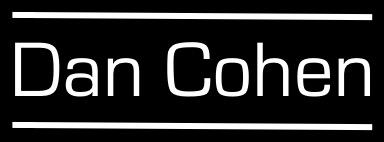If you’ve wondered what an academic trying to podcast while on Google Wave might sound like, you need listen no farther than the latest Digital Campus podcast. In addition to an appraisal of Wave, we cover the FTC ruling on bloggers accepting gifts (such as free books from academic presses), the great Kindle-on-campus experiment, and (of course) another update on the Google Books (un)settlement. Joining Tom, Mills, and me is another new irregular, Lisa Spiro. She’s the intelligent one who’s paying attention rather than muttering while watching Google waves go by. [Subscribe to this podcast.]
Category: Amazon
-
-
Digital Campus #29 – Making It Count
Tom, Mills, and I take up the much–debated issue of whether and how digital work should count toward promotion and tenure on this episode of the podcast. We also examine the significance of university presses putting their books on Amazon’s Kindle device, and the release of better copyright records. [Subscribe to this podcast.]
Happy 4th of July!
-
First Impressions of Amazon Connect
Having already succumbed to the siren’s song that prodded me narcissistically to create a blog, I had very little resistance left when Amazon.com emailed me to ask if I might like to join the beta of program that allows authors to reach potential buyers and existing owners of their books by writing blog-like posts. Called “Amazon Connect,” this service will soon be made available to the authors of all of the books available for purchase on Amazon. Here are some notes about my experience joining the program (and how you can join if you’re an author), some thoughts about what Amazon Connect might be able to do, and some insider information about their upcoming launch.
First, the inside scoop. As far as I can tell, Amazon Connect began around Thanksgiving 2005 with a pilot that enlisted about a dozen authors. It has been slowly expanding since then but is still in beta, and a quiet beta at that. It’s unlikely you’ve seen an Amazon Connect section on one of their web pages. However, I recently learned from the Amazon Connect team that in early February the service will have its official launch, with a big publicity push.
After that point, each post an author makes will appear on the Amazon.com page for his or her book(s). I found out by writing a post of my own that his feature is actually already enabled, as you can see by looking at the page for Digital History (scroll down the page a bit to see my post).
But the launch will also entail a much more significant change—to the home page of Amazon.com itself, which is of course individualized for each user. Starting in February, on the home page of every Amazon user who has purchased your book(s), your posts will show up immediately. Since it’s unlikely that a purchaser of a book will return to that book’s buy page, this appearance on the Amazon home page is important: Authors will effectively gain the ability to send messages to a sizable number of their readers.
Since generally it has been impossible to compile a decent contact list for those who buy a specific book (unless you’re in the NSA or CIA), Amazon’s idea is intriguing. While Amazon Connect is clearly intended to sell more books, and the writing style they advocate less than academic (“a conversational, first-person tone”), it’s remarkable to think that the author of a scholarly monograph might be able to reach a good portion of their audience this way. Indeed, I suspect that for authors of academic press books that might not sell hundreds of thousands of copies, the proportion of buyers of their book that use Amazon is much higher than for popular books (since those books are sold in a higher percentage at physical Barnes & Noble and Borders stores, and increasingly at Costco and Wal-Mart). Could Amazon Connect foster smaller communities of authors and readers, for more esoteric topics?
If you are an author and would like to join the Amazon Connect beta in time for the February launch, here’s what you need to do:
1) First, you must have an Amazon account. If you already have one, go to the special Amazon Connect website, login, and claim your book(s) using the “Register Your Bibliography” link. This involves listing the contact info for your publisher, editor, publicist, or other third party that can verify that you are actually the author of the book(s) you list. About a week later you’ll get an email confirming that you have been verified.
2) Create a profile. You are required to upload a photo, write a short biography, and provide some other information about yourself (such as your email address) that you can choose to share with your audience (I didn’t fill a lot of this out, such as my favorite movies).
3) Once you’ve been added to the system, you can start writing posts. Good luck saying hello to your readers, and remember Amazon Connect rule #5: “No boring content”!
